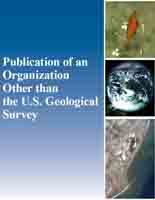Propagation of the Hawaiian-Emperor volcano chain by Pacific plate cooling stress
Links
- More information: Publisher Index Page (via DOI)
- Download citation as: RIS | Dublin Core
Abstract
The lithosphere crack model, the main alternative to the mantle plume model for age-progressive magma emplacement along the Hawaiian-Emperor volcano chain, requires the maximum horizontal tensile stress to be normal to the volcano chain. However, published stress fields calculated from Pacific lithosphere tractions and body forces (e.g., subduction pull, basal drag, lithosphere density) are not optimal for southeast propagation of a stress-free, vertical tensile crack coincident with the Hawaiian segment of the Hawaiian-Emperor chain. Here we calculate the thermoelastic stress rate for present-day cooling of the Pacific plate using a spherical shell finite element representation of the plate geometry. We use observed seafloor isochrons and a standard model for lithosphere cooling to specify the time dependence of vertical temperature profiles. The calculated stress rate multiplied by a time increment (e.g., 1 m.y.) then gives a thermoelastic stress increment for the evolving Pacific plate. Near the Hawaiian chain position, the calculated stress increment in the lower part of the shell is tensional, with maximum tension normal to the chain direction. Near the projection of the chain trend to the southeast beyond Hawaii, the stress increment is compressive. This incremental stress field has the form necessary to maintain and propagate a tensile crack or similar lithosphere flaw and is thus consistent with the crack model for the Hawaiian volcano chain.
Suggested Citation
Stuart, W., Foulger, G., Barall, M., 2007, Propagation of the Hawaiian-Emperor volcano chain by Pacific plate cooling stress: Special Paper of the Geological Society of America, v. 430, p. 497-506, https://doi.org/10.1130/2007.2430(24).
| Publication type | Article |
|---|---|
| Publication Subtype | Journal Article |
| Title | Propagation of the Hawaiian-Emperor volcano chain by Pacific plate cooling stress |
| Series title | Special Paper of the Geological Society of America |
| DOI | 10.1130/2007.2430(24) |
| Volume | 430 |
| Year Published | 2007 |
| Language | English |
| Publisher | Geological Society of America |
| Description | 10 p. |
| First page | 497 |
| Last page | 506 |


